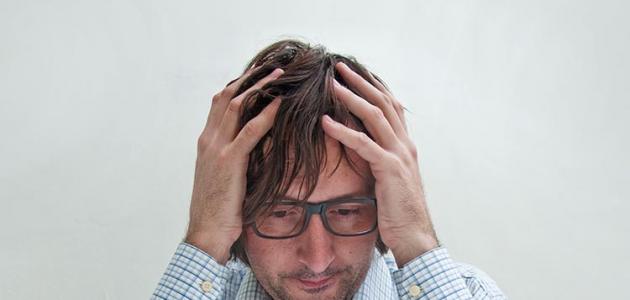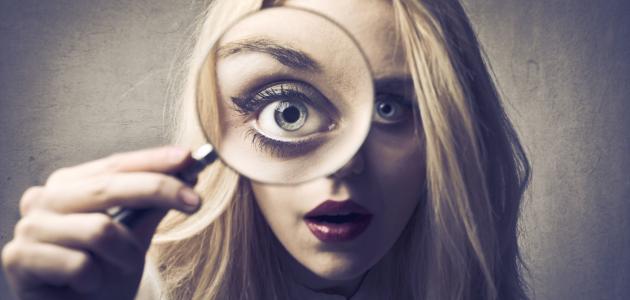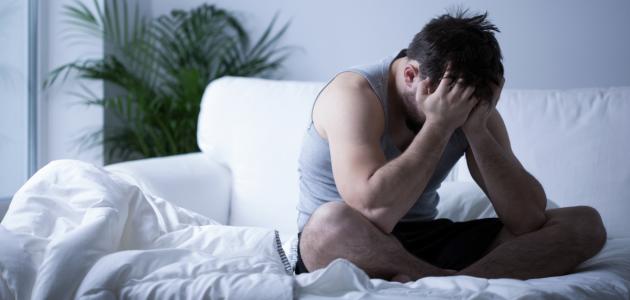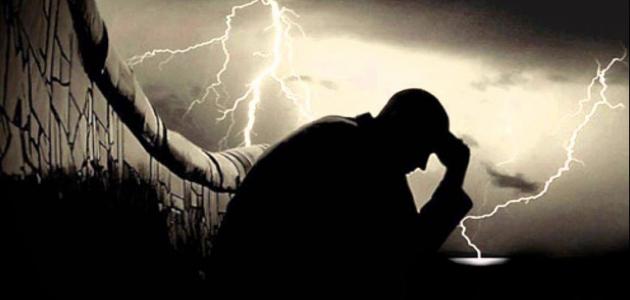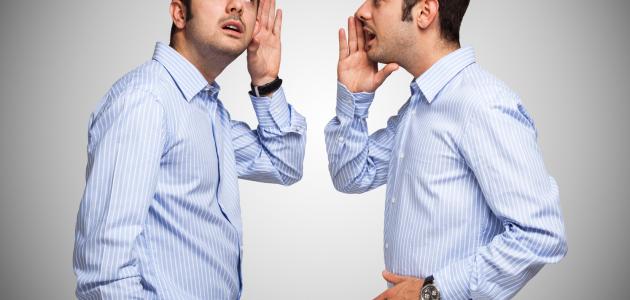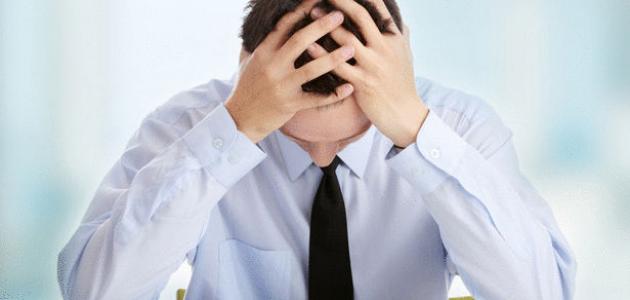Contents
An Overview of Depression
Depression or major depressive disorder is defined as that feeling that negatively affects the sufferer, his feelings, his way of thinking, and his behavior through severe and long-lasting symptoms and signs, in addition to its effect on the normal performance of his daily work and functions, where he goes beyond that Feeling sad for a few days that most people experience, and depression is the most common mental disorder, and despite the prevalence of this disorder, there are many undiagnosed sufferers who hesitate to make a decision to see a doctor or psychologist, and this can be attributed to many reasons; Some people may be shy about being diagnosed with a mental disorderAnd some others may see depression as a weakness in itself and not a real disease, and it should be noted that there are and availability of many effective treatments that help treat depression and recover from it, and return to daily activities on a daily basis, so it is very important to see a doctor if feeling With persistent symptoms of depression; This is due to the complications of this disorder on the sufferer: such as its negative impact on his lifestyle, the increase in his suicidal thoughts, and the decline in the person's health status in the event that he suffers from other disorders and chronic diseases . [1] [2]
Symptoms of depression
In fact, the symptoms and signs appearing on a person with depression differ according to many factors: such as age, gender, and cultural background of the person affected; For example, younger children may have difficulty expressing feelings of depression, so you will find the child in this case more irritable or complaining of some physical symptoms, and adolescents may also notice rebellion, retreat in school, isolate themselves socially, or increase doing dangerous acts, and it should be noted. Indicates that depression is more difficult to notice in older people; As it is usually believed that the symptoms appearing on them are due to aging or their affliction with other health disorders, [3] The following is an explanation of some of the most prominent symptoms and signs of depression: [4] [1]
- Regression in mood: People with depression usually feel sadness, loss of hope and motivation, upset, ease of irritation, frustration, anger, and sometimes sufferers do not feel the events that occurred to them as a result of their depression and describe this as their feeling of tension and loss of feelings in general, so that the decline continues Mood all or most of the time, and that person or those around him may notice.
- Loss of interest: Anhedonia sufferer does not feel any interest or pleasure during the performance of his work, his daily activities, or his hobbies that he used to enjoy in the past, and he may lose interest in the people around him.
- Changes in appetite and weight: The appetite and weight of a depressed person may change, either increase or decrease. It may be that the effect of depression increases the patient's appetite and increases his intake of certain foods such as prepared foods and carbohydrates, or that the appetite decreases and he becomes forced to force himself to eat.
- Changes in sleep: Depression usually leads to sleep disturbances, such as that the sufferer faces difficulty sleeping, wakes up early in the day, or suffers from insomnia (Insomnia), or hypersomnia , and rarely feels A person with depression is rested after sleeping in either case.
- Increase or lethargy in movement: The patient may exhibit some symptoms of irritation, such as increased movement of the hands, an increase in the speed of the step, or boredom and restlessness, or the exact opposite of the symptoms of slowness and lethargy, such as slow movement, thinking, and speaking.
- Fatigue: or the loss of energy necessary to carry out activities, and the victim may need periods of rest during the day, and he may face difficulty during the initiation or completion of daily tasks.
- Feeling of insignificance: or the feeling of exaggerated guilt about some of the things that he did or did not do, and a person with depression usually feels failure, inferiority, or that he is an unqualified or worthless person.
- Impaired focus: A depressed person may have difficulty thinking, concentrating, and making decisions, in addition to being easily distracted and sometimes losing memory.
- Thinking of death or suicide: It may be suicidal ideation (suicidal ideation ) that the sufferer suffers from just feeling the loss of the value of life, but it may be severe at times in which the victim is seriously thinking about ending his life.
To learn more about the symptoms of depression, read the following article: ( What are the symptoms of depression ) .
Causes of depression
There are many theories circulating to explain what the causes of depression are, and perhaps the most common of them are the substances and chemical reactions occurring in the brain , except that there are millions or billions of chemicals in the body that may be responsible for a person's mood and outlook on his life and matters related to it. There are many other factors that may be biological or external influences that may have a role in the likelihood of people developing depression, and although there is not yet a specific and known main cause of the injury, we will mention some of the factors that may be mentioned below. Has a role in the development of depression: [5] [6]
- Biological differences: It is thought that people with depression may have physical differences in the shape of their brains.
- Brain chemistry: There are chemicals in the brain called neurotransmitters, which studies have shown that their functions and influence have a major role in controlling people's moods, and thus the feeling of depression and how to treat it, and among the neurotransmitters that play a role in that: Serotonin Dopamine and Norepinephrine.
- Hormones: An imbalance of some hormones may have an effect on stimulating or causing depression. This imbalance may occur during pregnancy , or because of problems with the thyroid gland, or in the postpartum period , or upon reaching menopause .
- Genetics: Depression is often more common in people who have other family members afflicted with it, and scientists are trying to uncover genes that cause depression.
- Other life factors: such as: exposure to trauma, abuse, loss of dear people, exposure to financial problems, chronic diseases such as cancer, stroke , heart disease, or mental disorders such as stress . Anxiety), eating disorders, as well as personality. Such as: lack of self-confidence or poor character.
To learn more about the causes of depression, read the following article: ( Causes of depression ) .
Types of depression
In fact, the types of depression differ among people with depression according to the different symptoms and signs appearing on the person, in addition to the different causes, and in the following we mention some of the most important types of depression: [7] [8]
- Major Depression Disorder: This type refers to the depression whose symptoms and signs were previously mentioned.
- Partial depression: known as Dysthymia or Persistent Depressive Disorder, which is a feeling of sadness or low mood for long periods of up to two years or more.
- Seasonal affective disorder: show signs of depression infected with this type of it during certain periods of the year; Often in the winter period where low exposure to light, and can cure the infected by taking drugs antidepressant or through treatment by light , but it usually disappears when you start the spring or summer.
- Atypical depression: , is a type of depression that differs from major depressive disorder in some symptoms such as: the sufferer feels heavy in the extremities of his body, sleep for longer periods than usual, and an increase in sensitivity to criticism, and it should be noted that the sufferer usually He feels a noticeable and temporary improvement in mood in the event of a positive event.
- Bipolar disorder: , which is a disorder during which the sufferer goes through periods of euphoria and excessive mood elevation, and other periods in which symptoms of depression appear.
- Psychotic depression: This type of depression is the coincidence of symptoms of depression sometimes with symptoms of psychosis. Such as hallucinations , delusions , and paranoia, or as it is known as paranoia .
- Postpartum depression: , which is a woman's feeling of depression during the weeks or months after childbirth .
- Premenstrual syndrome: , some females may feel depressed at the beginning of the menstrual period, and it may be accompanied by some other symptoms; Mood swings, anxiety, and irritability.
- Depression Situational: , a feeling of being depressed as a result of difficult conditions; Such as the death of a close relative, problems at work, or the end of a relationship.
To learn more about the types of depression, read the following article: ( Types of depression ) .
Diagnosis of depression
Below we mention some of the criteria that are often used to diagnose depression: [9] [1]
- History of depressive symptoms: where the person is asked about the exact psychological and personal symptoms he suffers from, and whether he has suffered from any changes during the last period of his life, which may be due to the emergence of these symptoms, and it should be noted that the diagnosis of depression depends mainly on Symptoms that were mentioned in the previous paragraph; The diagnosis is made in the event that the patient suffers from five or more of the above-mentioned symptoms daily for two consecutive weeks, and in addition to that, both low mood and loss of interest must be among these symptoms, and the symptoms he suffers from affect the course of his daily life.
- Family history of a person with depression: Since the incidence of depression may be related to genetic factors, the person is usually asked about the existence of any family history of depression.
- Examinations and tests to rule out other diseases and disorders: Diagnosis of depression does not depend on the conduct of specific laboratory tests; There is no analysis or blood test that can determine whether a person suffers from depression or not, but the doctor may recommend some tests to exclude some diseases and health conditions that may cause symptoms similar to sadness and depression, such as thyroid function checks; As the symptoms of sadness and low mood may be caused by a person having hypothyroidism .
To learn more about the diagnosis of depression, read the following article: ( Diagnosing depression ) .
Treat depression
Treatment for depression depends mainly on its severity. In the event that a person with low-severity depression is diagnosed, the doctor may recommend waiting for a period of not less than two weeks and monitoring whether the patient may improve, and studies have shown the effectiveness of exercise in alleviating depression, in addition to the resort to dialogue with a relative Or, friends, or professionals about the nature of his feelings may help him get rid of depression, and in the case of low to moderate depression, behavioral treatments, speech therapies, or pharmacological treatments may be recommended, but in cases of severe depression, more than one type of treatment may be recommended. And in what follows is an explanation of some of the types of treatments that a doctor may resort to in the event that a person suffers from moderate or severe depression: [10] [11]
- Drug treatment: There are many types of antidepressants . Such as Selective Serotonin Reuptake Inhibitors, Serotonin-Norepinephrine Reuptake Inhibitors, Tricyclic Oxidepressants (Tricyclic Antidepressants) and Tricyclic Antidepressants And given that most of these drugs are of similar efficacy, the choice of treatment dependsMedication for a person with depression based on other factors such as: side effects, the patient’s affliction with other health disorders, or taking other medicines, the patient’s personal choices, the price of the medicine, in addition to the patient’s previous experiences with antidepressants if any. It should be noted that pharmacological treatments for depression usually It takes time to take effect; The patient's improvement may begin after one to two weeks, but full improvement often requires 6-12 weeks. [11] [12]
- Psychotherapy: There are many types of psychotherapy used that have proven effective in treating depression , usually these treatments depend on the specialist help that promotes positive thinking among the injured and catalyzed to make the necessary changes to relieve depression.
To learn more about depression treatment in general, read the following article: ( Methods of treating mental depression ) .
To learn more about treating depression with drugs, you can read the following article: ( What are antidepressants ) .
Tips for people with depression
In fact, depression usually makes the practice of life in a normal way difficult, but there are many tips that can be followed to reduce the severity of the impact of depression on the person’s life, so it is advised that the depressed person talk about the problems he faces. Whether it is talking with a friend, relative, professional, or a group of people suffering from depression, it may help to make some changes in sleep patterns; Such as turning off electronic devices and doing some relaxing activities, and changing the diet; Eating more fruits, vegetables, fish, and olive oil, and quitting smokingAnd alcoholic beverages, and a person with depression must always try to control the negative thoughts he faces and try to change them, and it is advised to avoid postponing the daily tasks that he usually does, and to try to do them in the usual way and time, and it is worth noting the importance of the effect of someone's depression on those around him From relatives or friends; These people are usually advised to talk about their problems to alleviate this effect, in addition to the importance of following up with the depressed patient and paying attention to signs of his thoughts of suicide, such as talking about death, or that the victim hurts himself, and the need not to neglect him, and see a specialist as soon as possible if noticed. [13] [14] [15]
Depression in children and adolescents
The feelings of sadness that a child or teenager may experience at some times does not necessarily mean that he suffers from depression. But if the parents notice that the child is constantly sad, and exceeds two weeks, and these feelings clearly impede his ability to socialize, study, and practice hobbies and daily activities, then this matter requires a psychologist to evaluate the child's condition and confirm the diagnosis, and help him overcome feelings of sadness and depression The following are the symptoms and signs that may accompany a child with depression: [16]
- Feeling irritable, irritable, and irritable.
- Social withdrawal, increased sensitivity, and fear of being rejected by others.
- Constant feeling of sadness and hopelessness.
- Notice changes in the child's appetite; So that his appetite for food increases or decreases significantly.
- Notice changes in the baby's sleep; So that his sleep increases or decreases significantly.
- Extreme emotion of screaming and crying.
- General fatigue and loss of energy.
- Complaining of physical pain without cause such as abdominal pain or headache.
- Feelings of guilt or insignificance.
- Difficulty concentrating.
- Thinking of suicide.
References
- ^ A b T. "Patient Education: Depression In Adults (Beyond The Basics)" , Www.uptodate.com , Retrieved 27-12-2019. Edited.
- ↑ "What Is Depression?" , www.psychiatry.org , Retrieved 27-12-2019. Edited.
- ↑ "Symptoms of depression" , www.healthdirect.gov.au , Retrieved 12-27-2019. Edited.
- ↑ "Understand the Facts Depression Symptoms" , adaa.org , Retrieved 27-12-2019. Edited.
- ↑ "What causes depression?" , www.health.harvard.edu , Retrieved 27-12-2019. Edited.
- ↑ "Depression (major depressive disorder) symptoms & causes" , www.mayoclinic.org , Retrieved 27-12-2019. Edited.
- ↑ "Depression" , www.psycom.net , Retrieved 5-1-2019. Edited.
- ↑ "Types of Depression" , www.webmd.com , Retrieved 5-1-2019. Edited.
- ↑ "Depression Diagnosis" , www.news-medical.net , Retrieved 27-12-2019. Edited.
- ↑ "Treatment-Clinical depression" , www.nhs.uk , Retrieved 4-1-2019. Edited.
- ^ A b "Patient Education: Depression Treatment Options For Adults (Beyond The Basics)" , Www.uptodate.com , Retrieved 4-1-2019. Edited.
- ↑ "Depression (major depressive disorder) Diagnosis & treatment" , www.mayoclinic.org , Retrieved 4-1-2019. Edited.
- ↑ "What is depression and what can I do about it?" , www.medicalnewstoday.com , Retrieved 5-1-2020. Edited.
- ↑ "Depression" , www.nhsinform.scot , Retrieved 5-1-2019. Edited.
- ↑ "8 Tips for Living With Depression" , www.verywellmind.com , Retrieved 5-1-2019. Edited.
- ↑ "Depression in Children" , www.webmd.com , Retrieved 8-5-2020. Edited.

